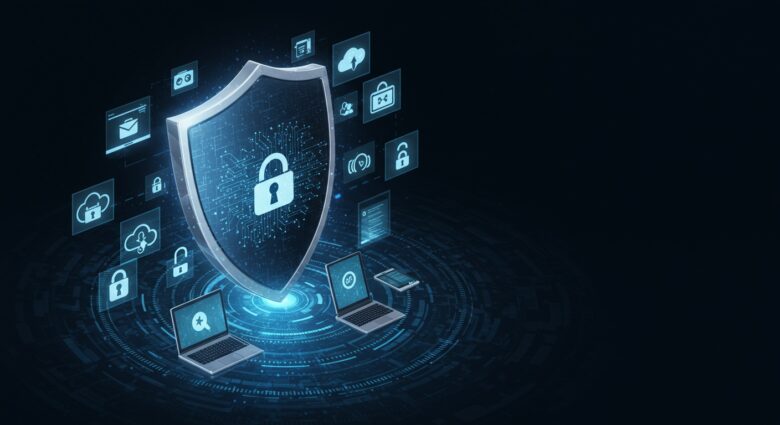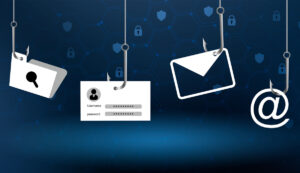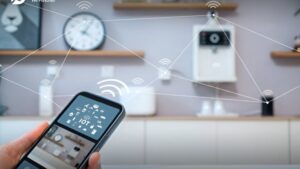By 2025, our digital presence will be more powerful than ever. From mobile banking and shopping to cloud storage and working from home, a large part of our lives revolves around the internet. This makes life easier but also leads to more sophisticated cyberattacks. Data breaches are increasing, hackers are deploying AI-driven attacks, and phishing fraud is becoming increasingly difficult to detect. Protecting your online identity has become a top priority. Integrating security measures into your daily life or work can make or break your security. The latest and best internet security advice for 2025 protects your devices, personal data, and digital footprint. In a connected world, these strategies can help you stay ahead of fraudsters and take control of your digital life.
Stronger, Smarter Passwords
Traditional passwords remain the most important line of defense against hackers, but by 2025, they will no longer be enough. Cybercriminals are using AI to crack weak or misused passwords in seconds. To stay safe, use longer, more complex, and unique passwords for every account. Uppercase and lowercase letters, numbers, and special characters are crucial. But remembering dozens of secure passwords can be difficult, making a password manager indispensable. These programs can generate and securely store passwords, eliminating predictable patterns. Passphrases (strings of random words) are more secure and easier to remember than short, complex strings. In short, cybersecurity in 2025 will depend on smarter passwords, not just “123456” or “password.”
Enable Multi-Factor Authentication (MFA)
In 2025, multi-factor authentication (MFA) will be one of the best ways to protect your online accounts. MFA requires a password and a fingerprint, facial recognition, or phone verification code. Even if hackers obtain your password, they still need a second factor, making it harder to hack your account. Biometric authentication and hardware security keys make MFA even more user-friendly. Several major platforms recommend or require MFA to prevent unauthorized access. Enable it now for your email, banking apps, and social media accounts. This can significantly reduce the chance of fraudsters stealing your digital life.
Beware of AI-driven Phishing
By 2025, AI will make phishing attacks even more realistic. Cybercriminals will use artificial intelligence (AI) to create personalized phishing emails, websites, and audio messages that sound like authentic connections. Because these attacks look real, they are harder to detect. To stay safe, check the source of suspicious emails, links, or messages before clicking on them. Avoid providing personal information on unprotected platforms, check URLs for minor errors, and never ask for money or login credentials too quickly. Many email providers now have AI-driven spam filters that can block phishing attacks. Whether legitimate or not, vigilance and caution are among the best defenses against modern cyberthreats.
Fix Your Devices
Outdated software remains a major cybersecurity risk. As more and more smart devices become connected to the internet in 2025, hackers can exploit vulnerabilities in outdated systems to launch attacks. Patching security vulnerabilities in smartphones, laptops, and smart home devices requires regular updates. Most devices have automatic update features, but many users ignore or delay updates, leading to personal data leaks. Applications, browsers, and antivirus software must be up-to-date with the operating system. Developers release patches to address new vulnerabilities, so missing updates is risky. Updating your devices can protect you from hackers and give you access to new features and performance.
VPN and Secure Wi-Fi
Public Wi-Fi networks in cafes and airports, while convenient, are a popular target for hackers. In 2025, thieves will use modern technology to intercept data through unsecured connections, putting your sensitive data at risk. A VPN is the safest way to use public Wi-Fi. Your internet traffic is encrypted by a VPN, making it virtually impossible to trace. A secure home Wi-Fi network is just as important as a public one. Use strong passwords, update the firmware, and protect your router with the latest encryption technology. Follow these steps to create a secure digital environment and reduce the risk of network penetration everywhere.
Practicing Safe Online Behavior
Technology alone cannot guarantee security; user behavior is crucial. By 2025, scammers will rely more on human error than on technological malfunctions. Safe online behavior is crucial. Sharing too much personal information on social media can lead to identity theft. Apps and software from unknown sources can contain malware. Before entering sensitive information, check whether the website uses HTTPS encryption. Regularly reviewing your account activity and bank statements can help identify unusual activity. A security-first approach can significantly reduce your risk of cybercrime.
Conclusion
In 2025, protecting your digital life requires awareness and action. Rapidly emerging cyberthreats are using artificial intelligence to exploit vulnerabilities in technology and human behavior. By taking the right measures, you can stay ahead. Strong and unique passwords, multi-factor authentication, device updates, phishing protection, and online security are all proven strategies for improving online safety. In addition to tools and technology, awareness—staying vigilant and making smart online choices—is the best guarantee for safety. Online security is like locking your door: it reduces risk, but it doesn’t guarantee safety. By 2025, these improved practices will protect your personal data, finances, and digital identity, giving you peace of mind in a connected world.
FAQs
1. What will be the biggest cybersecurity threat in 2025?
AI-powered phishing attacks are one of the biggest concerns because they are more targeted and harder to detect.
2. Will antivirus software still be necessary in 2025?
Antivirus software is still crucial, but it now uses AI to detect threats that traditional programs miss.
3. Is biometric login more secure than a password?
Biometric authentication, such as fingerprint and facial recognition, can improve security, but passwords or multi-factor authentication (MFA) are more effective.
4. Should I use a VPN at home or only on public Wi-Fi?
VPNs are essential for public Wi-Fi, but using a VPN at home encrypts all internet traffic for greater privacy.
5. How do I know if my account has been compromised?
Compromised accounts often involve password reset requests, unknown login credentials, and unexpected financial transactions.



